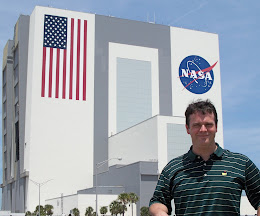ATLANTA -- The sun rises over the Australian outback and over an isolated desert.
The area marks the location for the likely discovery of several historic space rocks which survived the plunge through earth's atmosphere long ago.
A real treasure to geologists and astronomers alike, these rocks are known as meteorites and they hold the clues into the creation of our universe several billion years ago.
As the wind gusts over the untouched desert, the whirl of metal detectors grows stronger as two long time meteorite experts patiently search for one space rock which broke apart as it impacted earth's southern hemisphere decades ago.
As professional meteorite hunters Geoffrey Natkin and Steve Arnold detect several possible iron rich stony materials buried deep below, and begin to dig towards their treasure. The internal makeup of each rock will give scientists a look into what new minerals are out there.
Their findings will also rewrite what scientists had believed happened during
the impact, not only of our solar system but our universe.
These meteorite men will spend the next several days researching the region until they have exhausted their search for the debris from a single meteorite.
Steve and Geoff are the Meteorite Men, an award winning show on The Science Channel which continues to draw a huge following across the globe.
Both men share host duties of the entertaining weekly television show as they investigate the world's known impact sites.
This aerospace reporter spent the day being schooled by the
wise-cracking duo as they toured and spoke with guests at the Tellus
Science Museum near Atlanta.
My first topic went directly to the famous Russian meteorite on February 15, as I asked the pair to share their thoughts on the widely video recorded shock wave and impact at Chelyabinsk.
"Biggest thing ever!", Geoff said with a laugh.
Steve immediately steps in, "We really don't know how big it is until all the snow melts and how much gets picked up. This one didn't make any craters and there are tens of thousands of pieces."
Steve then hinted that "there's a slight chance there could be something television related with us going over there to (Chelyabinsk)."
Geoff found a strong interest in the historic value the recent meteorite gave the planet, "Major firsts, Chelyabinsk, first time there's ever been major damage to modern civilization documented by a meteorite fall. This is serious damage to modern human infrastructure by a meteorite."
In his strong British tone, Geoff explained how serious Chelyabinsk could have been, "It's time for the world to wake up and take the threat of near earth objects seriously. This should be a wake up call for the whole world. (Chelyabinsk) was nothing, that was a pin drop compared to what could happen, and if the fall had come in at a slightly different angle and all those meteorites had smashed into all those buildings, we could have seen ten times the injuries."
Steve added even stronger words, "If that rock was an iron, same size but iron, it would have killed everybody within five kilometers, and it would have burned like a hundred miles of forest. It is a very serious situation."
Geoff recently worked with NASA Edge television show about Near Earth Objects as they filmed an episode at the famous Meteor Crater in Arizona.
"If you need any more of a warning about what NEO's can do, stand on the rim of Meteor Crater and you will go, 'Yes, we should do something about this problem'," Geoff said with a nod.
Geoffrey is also owner of Aerolite Meteorites, a popular Internet
business specializing in sales of rare and colorful meteorites. Steve,
meanwhile, is owner of a retail business near his Huntsville, Arkansas
home known as Arnold Meteorites.
As Meteorite Men's popularity grows with new fans, the show is facing it's final season unless it's hosts can discover a new format.
"We can't continue to do the show exactly the way it's been done," Geoff explains. "If we want to make new shows, we need to reboot it. We need to look at some new ideas perhaps we could do more historic stories and meteorite legends, and maybe investigate meteorite craters."
"In the format that everyone's been used too, it's reached the end of it's limit," Steve adds.
As viewers tune in for the funny banter and cool location shoots, the show has also led to the discovery of unknown space rocks in the homes of several viewers. The show continues to educate on just how to look for and recognize a meteorite.
"Yes, we love the adventure, we love the hunt, but we also love the science", Geoff states of his multi season show. "We hope we've contributed something positive to the science of meteoritics."
(Charles Atkeison reports on aerospace, science and technology. Follow his updates via Twitter @AbsolutSpaceGuy.)
Friday, April 26, 2013
Subscribe to:
Posts (Atom)




